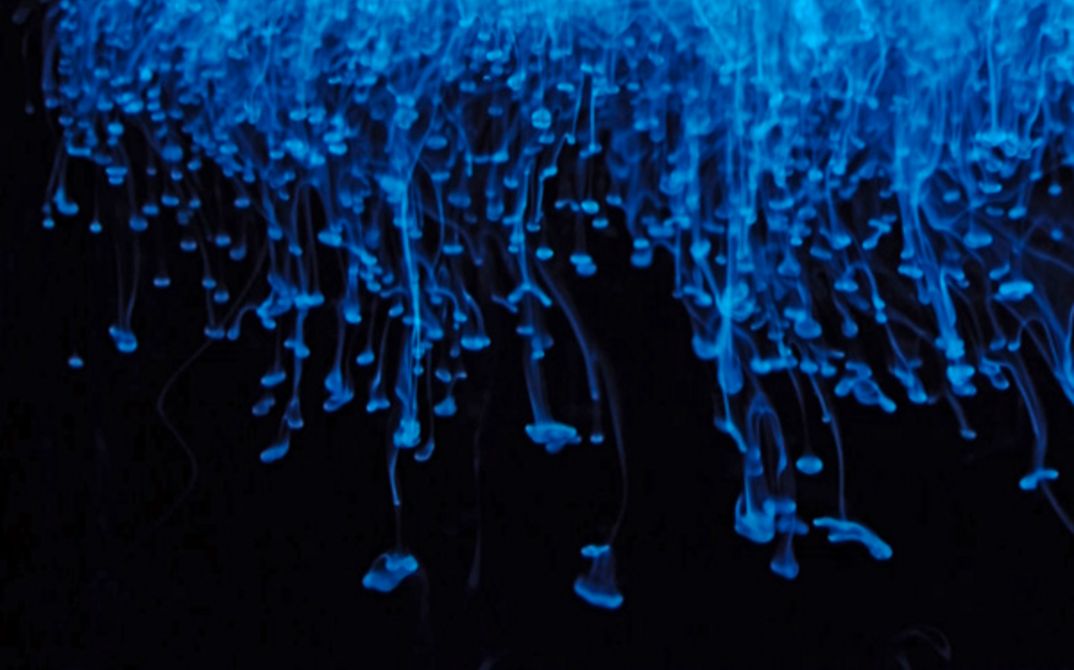2-channel video installation, 33 min. Polish, English.
The immersiveness of Cold Body Shining draws us into its poetic matter. The camera pulls us into diaristic and languid images of the area around Rotterdam. We can hear the artist’s hypnotic voice in two languages, which some can understand, while for others it tends to provide no more than an abstract tone, a rhythm. Her sensuous narrative of the imaginary world gradually leads us into Europe’s largest port.
The narrator steers us through a sequence of sleepy images. The omnipresent water surrounds us, we experience it with virtually all our senses. Her camera shifts between immersing itself in it and floating on its surface, between close-ups and aerial shots. The story told by Cold Body Shining is first and foremost about light. The sea shimmers with the bioluminescence of dead fish. After they die, herring emit light from the fatty phosphorous substance on their skin’s surface. This light lasts four or five days before they begin to decay. (Aurelia Nowak)
Marta Hryniuk, born in 1991 in Warsaw, Poland, lives and works in Rotterdam, where she currently studies at the Piet Zwart Institute. Before this she studied painting at the University of Arts in Poznań and multimedia at the Academy of Arts in Szczecin. She co-runs the nomadic artist-curator collective Silverado. She has participated in exhibitions in Poland and abroad.
